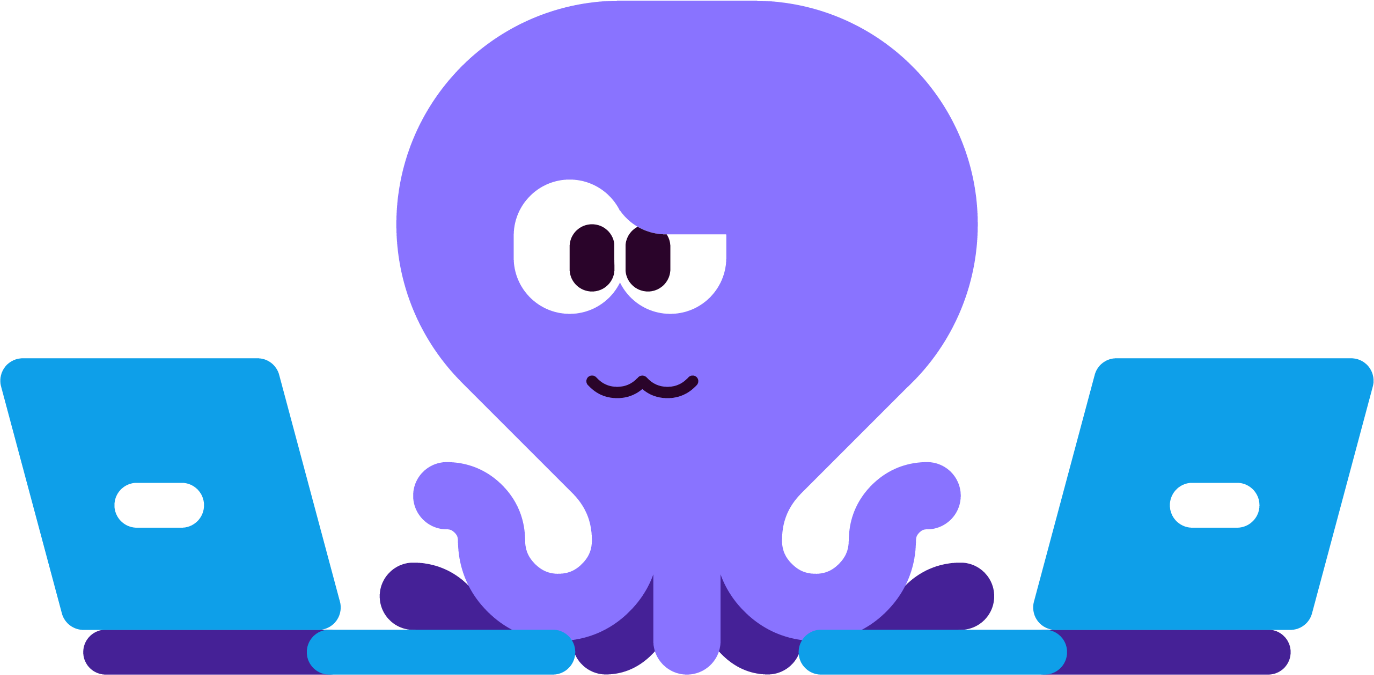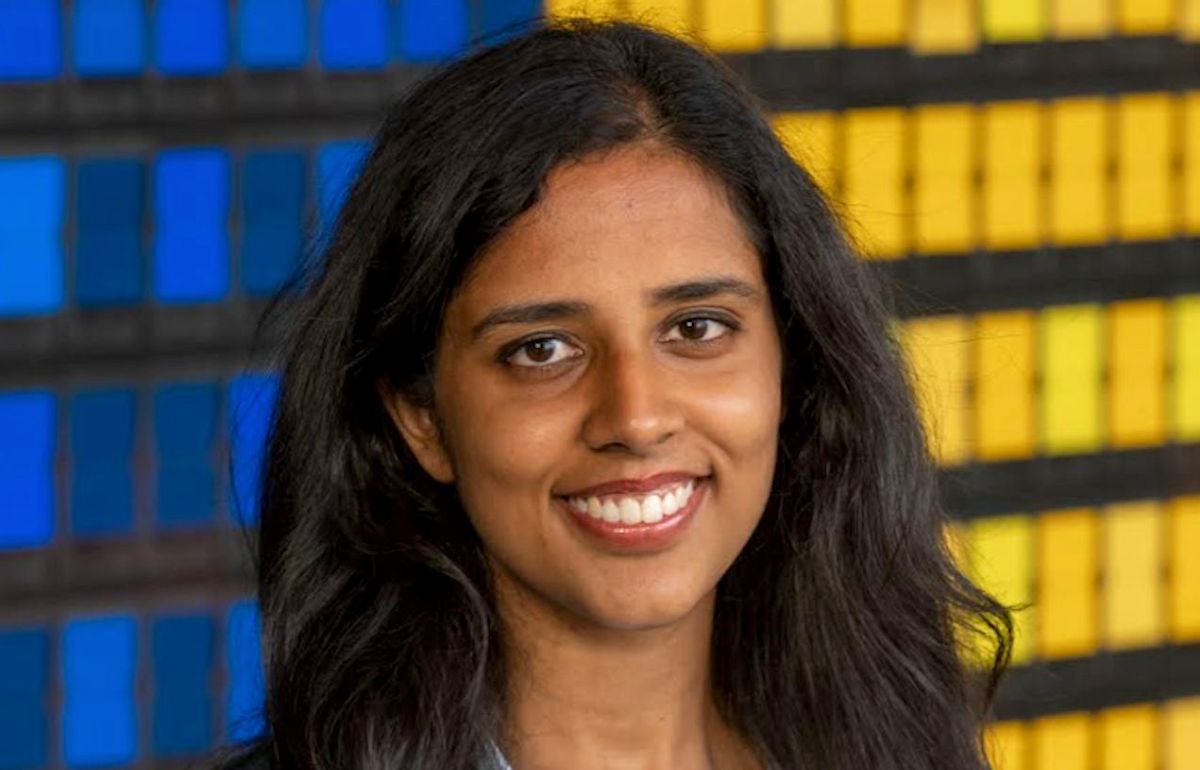Author: The Kira Learning Team
Date: Feb 22, 2022
When Jagriti Agrawal, Kira Learning’s Senior Director of Product and Founding Team Member, looked up at the stars as a teenager, the planet Mars held no special significance. It was just a red dot peeking through the orange-sodium glare of a suburban night sky.
Jagriti could not have known that in ten years time, she would be helping NASA’s Perseverance rover search the red planet for signs of alien life.
Back then, she had other things on her mind - like failing chemistry.
“I have a very vivid memory of the teacher calling students to her desk to return their paper,” said Jagriti. “If a student did poorly, she would say, with disappointment, ‘What happened here?’ so everybody knew who bombed the test. I remember her words to me were, ‘You’re going to need to do better.’”
“On the next quiz, I froze mid-test with the fear of not having the answers. With my concentration in knots, I answered less than half the questions,” said Jagriti. “That was the first time I realized how closely my self-confidence was tied to my performance and my performance was tied to my confidence - an unfortunate feedback loop.’”
Initially, Jagriti felt afraid, embarrassed, and hopeless. But ultimately, with the support and encouragement of her parents, she buckled down and mastered the fundamentals.
She began to understand why the world around her works the way it does—and it felt empowering.

“There’s something deeply fascinating in how chemistry underlies literally everything. When I finally started to connect the dots, it felt so fulfilling. I wanted to learn more.”
In the end, Jagriti didn’t just survive chemistry — through hard-work, support, and curiosity, she excelled. After graduating high-school in 2013, Agrawal earned a spot at Caltech, one of the world’s most renowned science institutions.
And then — she changed her major. It started with her first class in computer science. Going in, Jagriti knew next-to-nothing about the subject. Her high-school didn’t offer courses or resources in computer science, and now she found herself surrounded by classmates who seemed to have been coding since the cradle.
“My friend and I had never taken a CS class –I just kind of assumed that everyone else was somehow naturally better at the subject than me, which is really sad,” said Jagriti. “It’s not that they were naturally better, they just had the chance to start learning the subject at a much younger age.”
Through hard work, curiosity, and support from her TAs and classmates, Jagriti not only learned computer science, but she started to enjoy it too.
“I was excited by all the different things I could create by coding,” said Jagriti. “I started to enjoy the challenge of coming up with a solution to all different sorts of problems by being able to communicate with a computer.”
Upon graduation, she landed her dream gig at NASA’s Jet Propulsion Lab (JPL) working with the AI team on NASA’s latest Mars Rover, Perseverance.

Jagriti worked on the software that determined when the rover would perform which tasks, and in what order, to accomplish everything it needed to do.
Since no one knew when a Martian dust devil might interfere with the day’s planned activities, planners built in a large cushion for each activity. If they thought a task might take a certain amount of time, they might give the Rover 2x or 3x that amount of time just to be safe.
Everything that goes into space is built with multiple levels of redundancy and ample room for error. When you’re sending a multi-billion-dollar piece of hardware to another planet hundreds of millions of miles away, strapped to a multi-stage rocket fueled by highly explosive chemicals, space agencies like NASA don’t take foolish chances.
In addition to optimizing the schedule that was sent to the Rover from Earth, Jagriti and the team were exploring another big idea: what if in addition to the schedule it received from ground control, the Rover used onboard AI to react to uncertainty, make its own decisions, and do more tasks if it had enough time?
Jagriti took on the challenge to answer this question. She studied papers published by earth-bound delivery companies and published more than 10 of her own in various conferences and journals, including: Analyzing the Effectiveness of Rescheduling and Flexible Execution Methods to Address Uncertainty in Execution Duration for a Planetary Rover and Optimizing Parameters for Uncertain Execution and Rescheduling Robustness.
Even though the research confirmed the approach made sense, there was an understandable desire among leadership to better understand the risks involved in using it, especially given that this kind of technology had never been used before for such a high-risk mission. To push their case over the top, she and her team designed an explainable AI system so that the algorithm would not be a black box to users.
“That was a huge, huge convincing factor for them,” Jagriti remembers. “This was a two-billion-dollar-plus mission and they wanted to understand why the scheduler was making the decisions that it was.”
The Mars Rover Perseverance lifted off July 30 2020, tucked atop a 200-foot-tall Atlas V rocket, and the scheduling algorithm Jagriti had been working on had worked successfully. Having left JPL to start her MBA a few weeks prior to launch, Jagriti cheered on her team over a remote link from her apartment in Los Angeles.

Jagriti was proud of her work at NASA, excited for the team, and hopeful for the future of space exploration. But the most profound personal and professional experience wasn’t the code she wrote now hurtling towards Mars – it was her volunteer work to teach at schools, libraries, and especially with a program called School on Wheels, to tutor children in homeless shelters.
While Jagriti spent time mentoring and teaching kids, she saw how hard some children took it when they got a question wrong. She remembered how she had doubted herself in high school chemistry and during her first computer science class at Caltech.
“I just started thinking, how can we make these assessments better,” said Jagriti. “How can we develop a curriculum to teach students in a way that makes them feel curious and motivated to want to learn more, rather than making them feel hopeless and frustrated.”
At Stanford, that drive and mission soon led her to Andrew Ng’s AI Fund, and a newly minted edtech start-up from their incubator program – Kira Learning.
Founded by former Teach for China CEO Andrea Passinetti, Kira Learning is an AI powered education publisher for K-12 teachers and learners backed by the AI Fund and NEA. Launching later this year, the company has a vision to help schools provide high quality computer science + STEM education rooted in theory and application, so that all students can become informed, ethical, and skilled users and creators of technology. It was a perfect fit.
“I could immediately see how much both Andrew and Andrea cared about this issue,” said Jagriti. “It was really appealing to me to join a company that could make a change in the public school education system, because I think that's where the most impact is needed.”
Jagriti’s internship soon turned into a regular job. She now leads the development of Kira Learning’s core product.
Asked what she thinks Kira gets right, she doesn’t hesitate: “Empathy. We are constantly trying to put ourselves in the mind of our target learner and see the lesson from their perspective,” said Jagriti. “We want to empower students to believe in themselves and help them bring out the potential that exists within them.”
“Some people will argue that the fear of failure drives students to work harder and maybe it does for some people, but for me it was crippling,” said Jagriti. “Motivating students, without triggering the shame that drives students away from academics is key. The recipe includes building opportunities and support structures for those who currently lack access.“
“I think there were lots of issues in the way that I was taught AI and computer science in college,” said Jagriti. “It had a huge effect on my own self-esteem, and in some ways still does. I feel really fortunate to have had the support of my family, mentors, and friends who motivated me to keep trying but not everyone has that. I always try to keep in mind the gaps I had in my knowledge as I was learning, and what I wish would have been taught better.”
It’s Kira’s social mission that inspires her most, Jagriti says, with computer science — and especially AI — influencing every aspect of daily life. “It’s becoming a critical part of how the world around us works,” she says.
“In this technology driven world, unequal opportunities for young students not only leads to unequal abilities, but a distorted view of one’s potential,” said Jagriti. “It’s so important that this subject be made accessible to everyone regardless of their background, gender, race, or socioeconomic status. This is something everybody should have the chance to learn.”
After all, there are millions of teenagers around the world looking up at the sky, wondering what the possibilities of their future might bring.


